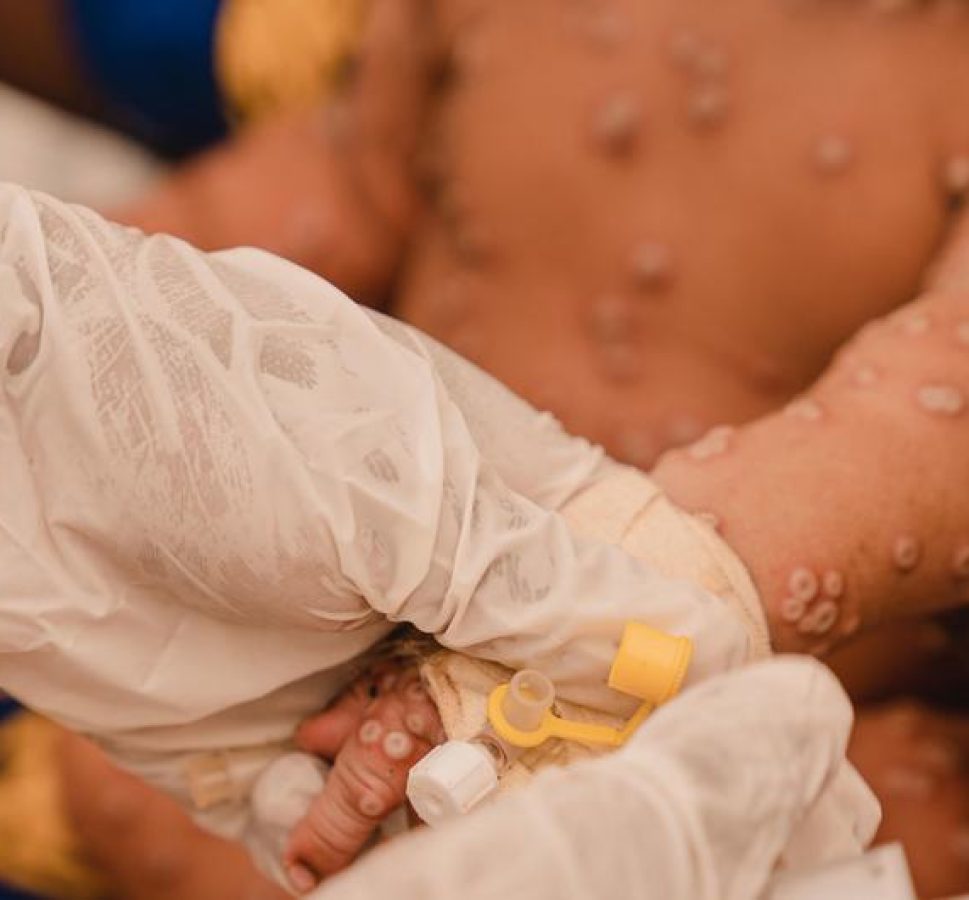
Several patients at a temporary Mpox isolation ward in the eastern Democratic Republic of Congo are in dire need of proper medical care as overwhelmed hospital staff struggle with medicine shortages and overcrowding.
These patients have been diagnosed with Mpox, a virus which was declared a global public health emergency three weeks ago.
Several reports over the past two weeks indicate that vaccines are expected to arrive soon to help combat the new strain of the virus. Congo’s President Felix Tshisekedi has also approved a $10 million fund to support the outbreak response.
Till all these promises come to reality, it appears health workers in parts of DRC, the epicentre of this outbreak will continue to struggle to provide adequate health care for patients.
In the town of the south Kivu village of Kavumu for instance, 900 patients have been admitted over the past three months with health workers struggling adequate support.
“We run out of medicine every day,” said Dr. Musole Mulamba Muva, the head of the hospital. He mentioned that the hospital faces many challenges with limited resources and that international aid has significantly decreased, Reuters reported.
Last week, 135 patients, both children and adults, were crowded into three large tents without proper flooring.
Family members, who usually provide food for patients in underfunded hospitals like Kavumu, were not allowed to visit the mpox ward to prevent the spread of the virus.
“We have nothing to eat,” said Nzigire Lukangira, a 32-year-old mother of a hospitalized child. “When we ask for medicine to lower our children’s fever, we get nothing,” she added, trying to feed her daughter honey.
Cris Kacita, who leads Congo’s response to the outbreak, admitted that some areas in the country lack medicine, but assured that delivering supplies, including 115 tonnes of medicine from the World Bank, is a top priority.
Regional intervention
Dr. Samuel Boland, the incident manager for Mpox at the WHO Regional Office for Africa, had on 23rd August told Africanews that the WHO adapting new strategies to reach even the conflict-hit regions in the DRC as part of their response to the resurgence.
“We can use things like the radio to reach people who might otherwise be difficult to access by foot. We have already begun the process of mobilizing a large network of personnel across the DRC and other Mpox-affected areas, who are already on the ground and ready to support the Mpox response in these very difficult and hard-to-reach areas,” said Dr Boland.
It however appears their strategies are yet to see the light.
The latest update from WHO reassures that this is not another COVID-19.
On Monday, August 26, nearly 1,000 delegates including the World Health Organization (WHO) Director-General Tedros Adhanom Ghebreyesus as well as health ministers from 47 member countries commenced a 5-day 74th session of the WHO Regional Committee for Africa which was partly aimed at finding the best solution to manage the new resurgence.






